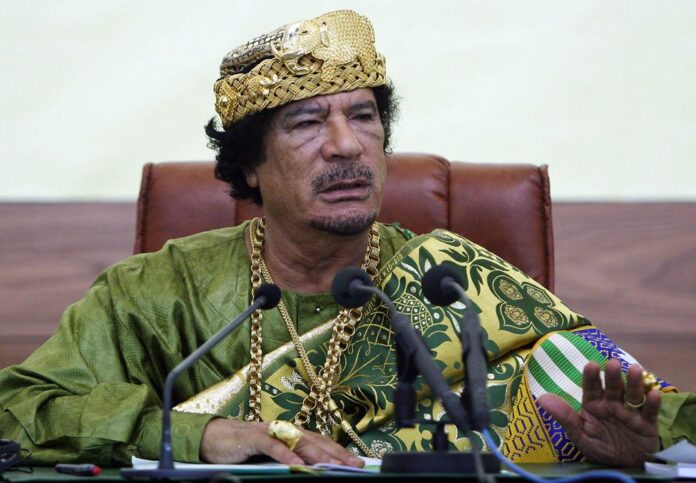By: Malumfashi
In the final days of Muammar Gaddafi’s rule, as bombs fell and rebels closed in, the long-standing Libyan leader issued a grim, prophetic warning that continues to echo through the war-torn corridors of his country:
“I will not go into exile to any foreign country. I was born here in Libya, and I will die here… This country was a desert, and I turned it into a forest, where everything can grow.”
These were not the words of a man ready to flee, nor of one willing to concede. Gaddafi’s final message, delivered in the heat of NATO-led intervention and internal rebellion, was as much a political statement as it was a haunting prediction of Libya’s uncertain future.
To some, Gaddafi’s words were the ramblings of a dictator clinging to power. But to others, they were a patriotic plea from a leader who, for better or worse, had transformed Libya from a colonial backwater into a country with Africa’s highest Human Development Index by the time of his fall.
“No one loves this land more than its citizens,” he declared, challenging Libyans to recognize the manipulative interests of foreign powers. “If Europe and America tells you that they love you, be careful. They love the wealth of your land, the oil, and not the people.”
For decades, Gaddafi positioned himself as a defender of African and Arab sovereignty against Western imperialism. He believed foreign nations, particularly in Europe and the United States, were more interested in controlling Libya’s vast oil reserves than promoting democracy or human rights.
Gaddafi’s declaration that he had turned Libya from “a desert into a forest” refers to the massive development projects under his rule, including the Great Man-Made River—an ambitious water supply system hailed as one of the largest engineering feats in the world.
But in the aftermath of the 2011 NATO-backed uprising, much of what had been built began to collapse. Libya splintered into rival factions and fell into a cycle of instability. By 2024, the country was still battling political fragmentation, economic disarray, and waves of violence.
In hindsight, many Libyans—especially those too young to remember the repressive nature of his regime—have started questioning whether the revolution that ousted Gaddafi truly delivered the promised freedom and progress.
Gaddafi’s parting shot was not just about his own survival—it was a caution against relying on foreign powers for liberation. He accused Western nations of aiding the rebellion not out of solidarity with the Libyan people, but to secure influence over Libya’s oil and strategic location.
“They are helping you to fight against me,” he warned, “but it would be wiser for you to fight against them, because they are fighting against your future and progress.”
That warning appears to have gained new meaning in the years since his fall. While Western nations assisted in toppling Gaddafi, they left behind a power vacuum. Militant groups, human traffickers, and foreign mercenaries flooded into Libya. Elections promised by transitional governments failed to bring peace. Foreign interests—Turkish, Russian, Emirati, and others—have carved up zones of influence, leaving many Libyans to wonder who truly governs their land.
Gaddafi’s final message ended with a chilling prophecy: “They are helping you to kill me, but you will pay the price because you will suffer.”
Indeed, Libya has suffered. From Benghazi to Tripoli, families have been displaced, basic services have collapsed, and infrastructure has crumbled. What was once a state that provided free education and healthcare now struggles to meet even the most basic needs of its citizens.
For many Libyans today, nostalgia is not for dictatorship, but for stability. The regret isn’t over Gaddafi’s removal per se, but over what came after—and who benefited.
Gaddafi’s 42-year rule was marked by both achievements and atrocities. He built roads, schools, and hospitals—and suppressed dissent with brutal efficiency. He nationalized oil revenues for development—but stifled press freedom and dissent.
Yet, in death, he has become a symbol of lost order. His final words serve as a warning to other nations in Africa and the Middle East: that the fall of a regime under foreign guidance may not always lead to peace, and that national sovereignty, once lost, is difficult to reclaim.
Conclusion
Muammar Gaddafi’s final address was not merely a cry for self-preservation; it was a political statement woven with prophecy, pride, and perhaps guilt. Whether viewed as a visionary or a tyrant, his parting message has left a lasting imprint on Libya’s soul.
As Libya continues to struggle for unity and stability, Gaddafi’s voice from the past lingers—a reminder that revolutions may win battles, but it is peace, governance, and true independence that win the war for a nation’s future.




